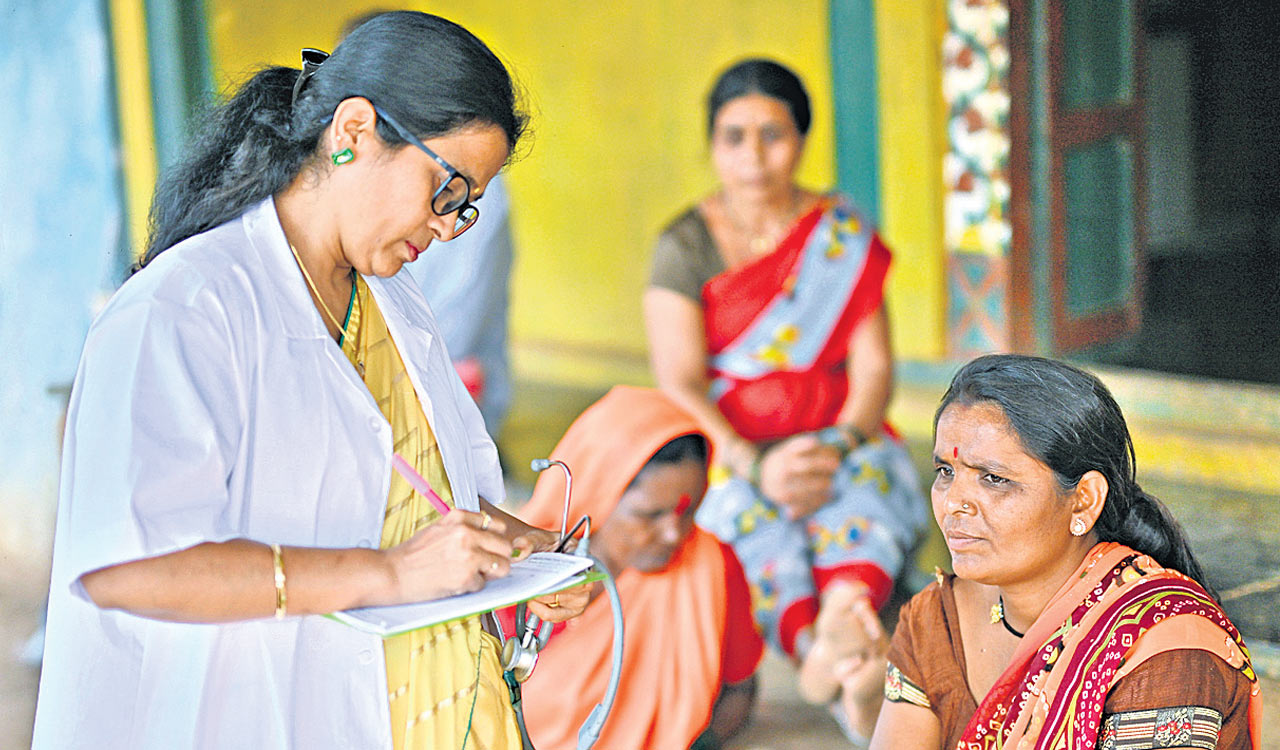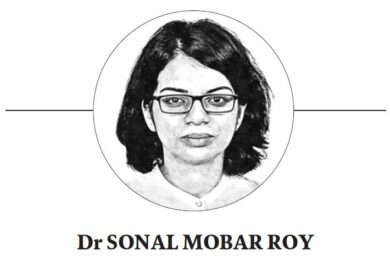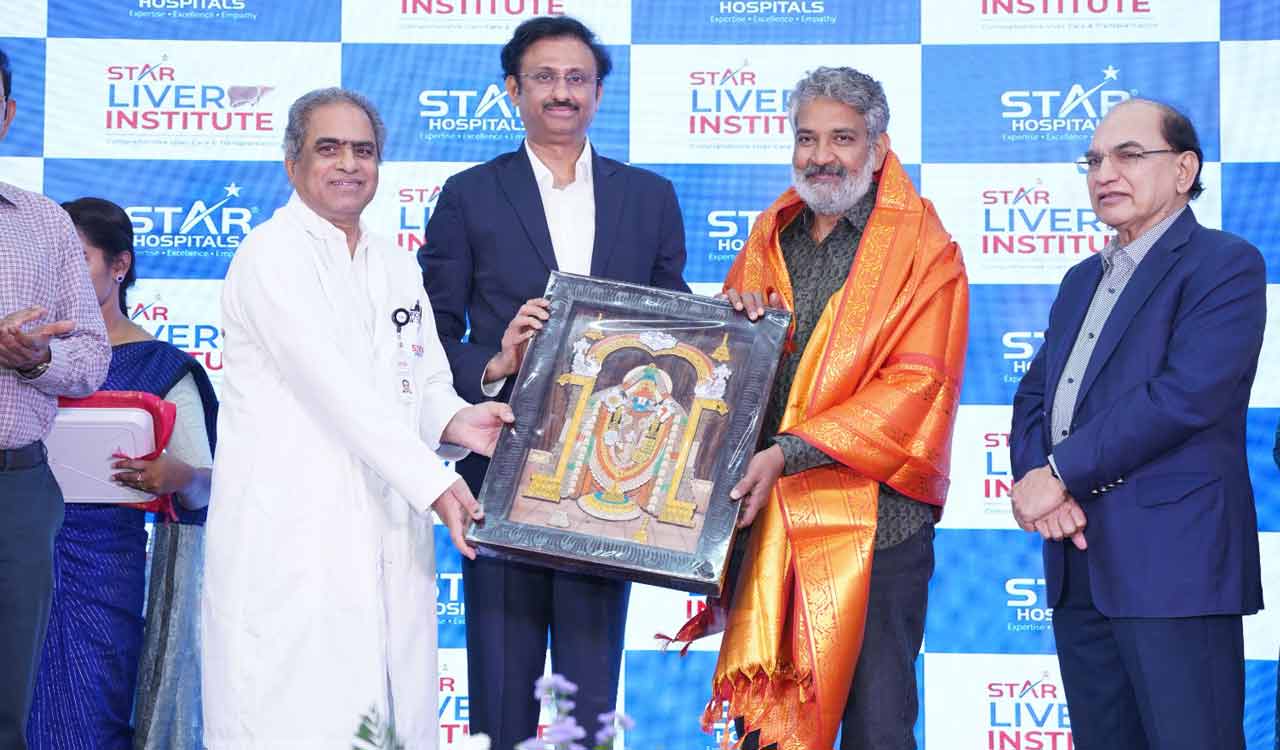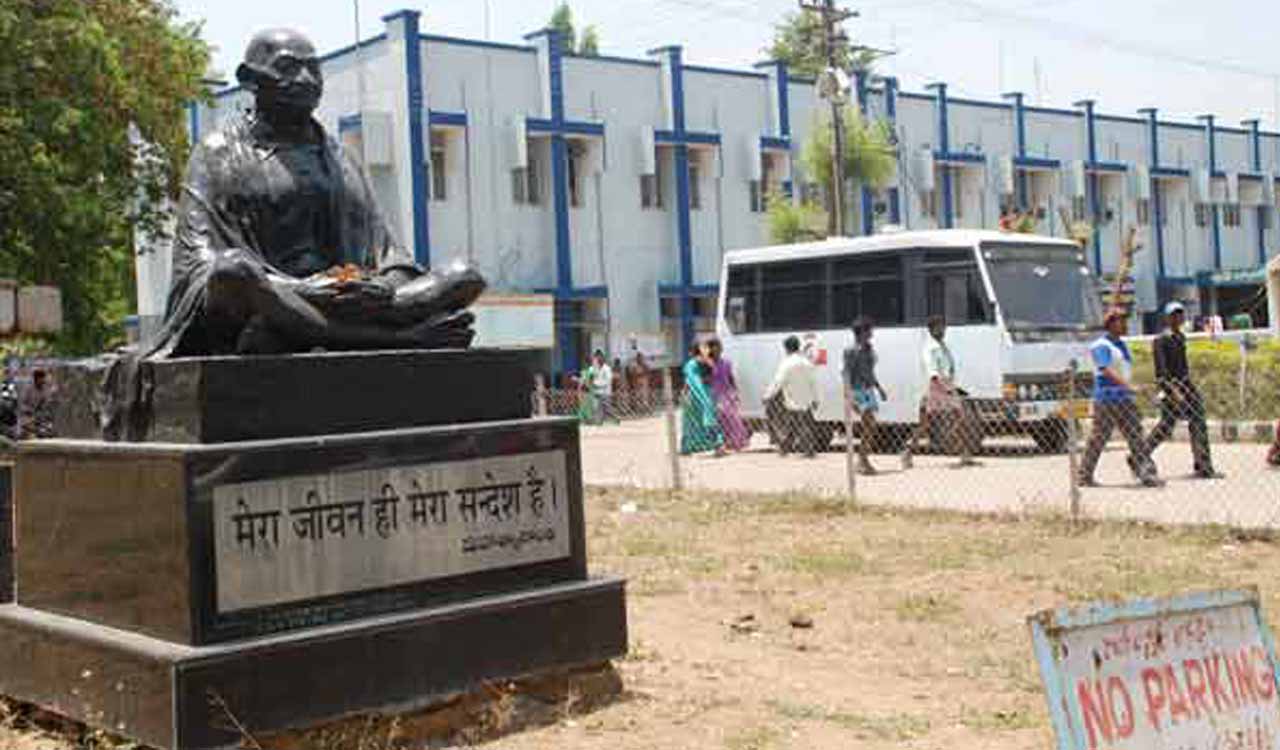Opinion: Make rural healthcare robust
As India marches towards Viksit Bharat, well-being of rural population must be at the forefront

By Dr Sonal Mobar Roy
India’s pursuit of universal health coverage encounters its most significant challenge in the rural hinterlands, where nearly 65% of the population resides. Despite recent progress, the rural-urban health disparity remains a critical issue, necessitating a sophisticated and comprehensive approach to healthcare delivery and policy implementation.
The 2023-24 budget allocated Rs 89,155 crore to the health sector, a 3.4% increase from the previous year. Healthcare spending also rose from 1.4% to 1.9% of the GDP, surpassing the National Health Policy 2017 target. The allocation for the National Health Mission, at Rs 36,000 crore for 2024-25, underscores the government’s commitment to rural health yet highlights the persistent need for more substantial investments.
Gap Remains
India has made strides in rural health infrastructure, yet gaps remain. As of 2022, the country had 161,829 Sub-Centres, 31,053 Primary Health Centres and 5,480 Community Health Centres, showing deficits of 24%, 18%, and 37%, respectively, against population norms. The Ayushman Bharat initiative established 1.64 lakh Health and Wellness Centres by 2024 — a significant achievement, though further expansion is crucial. Rural healthcare workforce shortages persist, with a doctor-population ratio of 1:1,456, well below the WHO’s 1:1,000 recommendation. Policy initiatives like Ayushman Bharat and the National Medical Commission’s district residency programme have made meaningful impacts but face challenges due to implementation gaps and resource constraints. While these policies have set essential foundations, their long-term success depends on addressing deeper issues such as infrastructure inadequacies, workforce retention and financial incentives. A sustained, multi-sectoral effort is critical to closing the rural-urban health gap.
State-wise performance in rural health varies, reflecting India’s diverse challenges and innovative responses. Kerala leads with its robust primary healthcare system and high health literacy, driven by the Aardram Mission, which has transformed primary care into comprehensive family health centres. These centres provide preventive, promotive, curative, palliative and rehabilitative services, emphasising the social determinants of health and community involvement.
Through social development and strengthening the healthcare system, Tamil Nadu’s maternal and child health success offers vital lessons for other States. Technology integration has become a game-changer in rural healthcare. The government’s eSanjeevani platform, with over 30 million teleconsultations, showcases telemedicine’s potential to bridge the rural-urban divide. Andhra Pradesh’s mobile health units, which reach over 13,523 villages, exemplify the impact of such innovations. Together with efforts to boost digital literacy and connectivity, these initiatives significantly improve healthcare access and quality in rural areas.
Modern Care
India’s traditional medicine systems, represented by AYUSH (Ayurveda, Yoga, Unani, Siddha and Homeopathy), are a unique strength. The 2024-25 budget allocated Rs 3,712 crore to AYUSH, emphasising government’s commitment to integrating these practices with modern healthcare. The National AYUSH Mission has established 12,500 AYUSH Health and Wellness Centres, providing culturally sensitive healthcare that can enhance service acceptance in rural areas.
Preventive healthcare and nutrition are vital for reducing the burden of rural disease. The Poshan Abhiyaan aimed at reducing stunting in children under six from 38.4% to 25% by 2022, with rates declining to 34.7% in 2017-18. However, continued efforts and increased funding are essential to meet these goals, especially as India’s Global Hunger Index 2023 score of 28.7 highlights ongoing concerns.
Achieving sustainable rural health in India requires a multifaceted approach that addresses infrastructure gaps, leverages technology, integrates traditional wisdom and empowers communities. The varied performances across States highlight the need for context-specific strategies while offering opportunities for cross-learning and adaptation of successful models. Increased budgetary allocations are essential, mainly aimed at reaching the National Health Policy target of 2.5% of GDP.
However, financial resources alone are insufficient; effective implementation, community engagement and a focus on social determinants of health are equally crucial.
Though the path ahead is challenging, a healthier rural India is achievable with rigorous efforts from the government at all levels, healthcare providers, communities and other stakeholders. This goal is not just a matter of health policy but a fundamental step towards inclusive development and social justice. As India marches towards becoming Viksit Bharat, the health and well-being of its rural population must remain at the forefront of its development agenda.
Rethinking Rural Health
Transforming rural schools into health hubs is a practical approach to addressing healthcare challenges. Teachers, respected in their communities, can be trained as health facilitators, conducting regular check-ups and disseminating vital health education. This strategy alleviates pressure on under-resourced facilities while enhancing health literacy and preventive care.
A ‘Health Credits’ system could incentivise healthy behaviours by rewarding households for proactive health activities, such as vaccinations and sanitation. These credits could be redeemed for healthcare services or essential goods, shifting the focus from reactive to preventive care, aligning with SDG 3. Community-owned healthcare enterprises offer a sustainable model for empowering rural areas. By operating clinics or pharmacies on a cooperative basis, profits are reinvested into local health initiatives, ensuring culturally sensitive and economically sustainable healthcare tailored to local needs.
Mobile Health Markets could further enhance accessibility, directly bringing healthcare services, products and nutritious foods to remote villages. These markets would transform healthcare into a community event, bridging the gap between availability and accessibility. A national platform for crowdsourcing rural health solutions could harness community creativity, fostering innovation and peer-to-peer learning. This approach ensures that solutions are both top-down and grassroots, unlocking local potential.
Finally, integrating health interventions with broader rural development programmes like MGNREGA embeds healthcare within the context of holistic rural development. This approach aligns with multiple SDGs and promotes comprehensive improvement in rural quality of life. Achieving sustainable rural health in India requires innovative, community-driven solutions and a focus on integrating health with broader development goals, making it central to the national agenda for inclusive growth.

(The author is Assistant Professor, Centre for Wage Employment and Livelihoods, National Institute of Rural Development and PR, Hyderabad. Views are personal)
Related News
-
Cartoon Today on December 25, 2024
4 hours ago -
Sandhya Theatre stampede case: Allu Arjun questioned for 3 hours by Chikkadpallly police
5 hours ago -
Telangana: TRSMA pitches for 15% school fee hike and Right to Fee Collection Act
5 hours ago -
Former Home Secretary Ajay Kumar Bhalla appointed Manipur Governor, Kerala Governor shifted to Bihar
5 hours ago -
Hyderabad: Organs of 74-year-old man donated as part of Jeevandan
5 hours ago -
Opinion: The China factor in India-Nepal relations
5 hours ago -
Editorial: Modi’s Kuwait outreach
5 hours ago -
Telangana HC suspends orders against KCR and Harish Rao
6 hours ago




